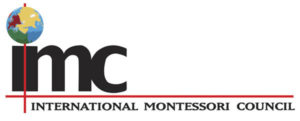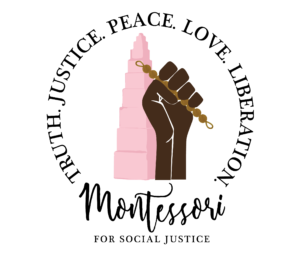An Open Address and Collective Position Statement: Critical Race Theory

The undersigned Montessori organizations challenge the national, state, and local legislative policies and laws that serve to regulate, limit, and intentionally omit what is taught about an honest history of the United States of America, the roles that all citizens played in its development, and exploration and discussion of racism and bias and its impact in our society. Beyond this, schools are implementing book bans and librarians and administrators are removing books from libraries (Natanson, 2022). Far too often, instead of an honest historical account, many educators offer an “inaccurate account of American history… [where non-European] …. [p]eople of other races are either pushed outside of the historical narrative, completely left out of the accounts, or their contributions are minimized because they are deemed inferior or different” (Takaki and Stefoff, 2012).
Over the last year, our nation has been immersed in discussions and legislative actions surrounding Critical Race Theory (CRT) or as some call it, “antiracist training and divisive concepts” (Stout and Wilburn, 2022). CRT is an advanced graduate school legal academic framework based on the notion that racism is not simply about individual prejudice, but it is prejudice embedded in our country’s laws, institutions, and policies (Levin, 2022). As a Montessori collective, we recognize that our independent and public schools operate within different legal contexts. We implore school leaders, teachers, and caregivers to educate themselves on the issues, understand local dynamics, and dig deep to help children develop an honest historical perspective and a moral compass that supports good judgement for the cultivation of more harmonious relationships in our society.
This statement serves as an urgent call to action for all educators to, as Maria Montessori did, advocate for the rights of children in all communities. This includes employing effective teaching approaches that emphasize the contributions of diverse cultures which exist in classrooms, schools, and communities, staying vigilant about policies state legislatures and local boards of education are doing, and making our voices heard if anti-CRT policies are proposed. This action affirms guides who are courageous enough to “teach with historical integrity” (Acker, 2021). With the knowledge of multiple perspectives, children may be able to think critically, ask questions, “cultivate positive identity formation, confront racial and ethnic injustice, and be more prepared to live and work together in a diverse world” (Learning for Justice, 2021). “When this transformation occurs, …we then become witnesses to the development of the human soul; the emergence of the New [Human], who will no longer be the victim of events but, thanks to his clarity of vision, will become able to direct and to [mold] the future of [humankind]” (Montessori, 1949/2019).
Click here to access additional background information and resources about CRT and legislative restrictions on the freedom to read, learn, and teach.
Co-Signers
Montessori Public Policy Initiative (MPPI)
Wendy Shenk-Evans, Executive Director

International Montessori Council (IMC)
Kathy Leitch, Executive Director
Tim Seldin, Chair

Montessori Educational Programs International (MEPI)
John Moncure, President

Association Montessori International/USA (AMI/USA)
Ayize Sabater, Ed.D, Executive Director

Montessori for Social Justice (MSJ)
Lindsey Pollack, Ed.D, Board of Directors/Finance Officer

National Center for Montessori in the Public Sector (NCMPS)
Sara Suchman, Executive Director


Citations
Acker, C. (2021, August 19). Critical Race Theory. Retrieved from WPFW Radio Archives (August 19, 2021).
Lesson Plans. Learning for Justice Magazine. Retrieved from:
https://www.learningforjustice.org/classroom-resources/learning-plans on 12/21/2021.
Montessori, M. (1949/2019). The Absorbent Mind (The Montessori Series). Amsterdam, The Netherlands: Montessori-Pierson Publishing Company.
Natanson, H. Schools nationwide are quietly removing books from their libraries (March 22, 2022).
The Washington Post. Retrieved from: https://www.washingtonpost.com/education/2022/03/22/school-librarian-book-bans-challenges/ on March 29, 2022
Takaki, R. and Stefoff, R. (2012) A Different Mirror for Young People: A History of Multicultural America (For Young People Series). New York, NY: Seven Stories Press
